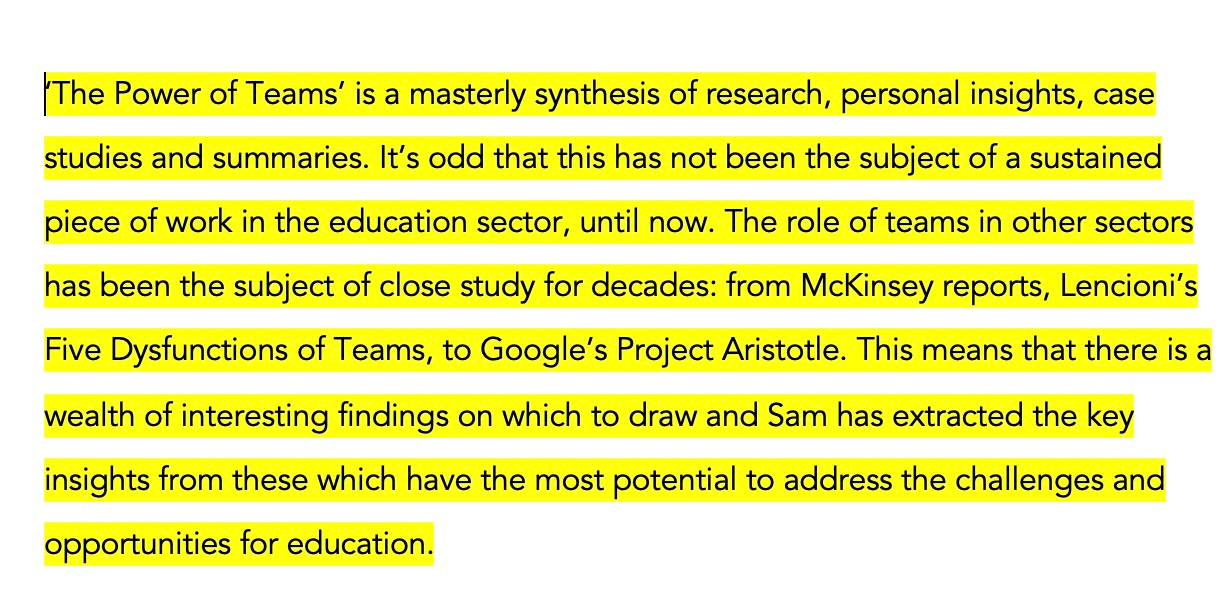‘Inclusive, good-quality education is a foundation for dynamic and equitable societies.’
Desmond Tutu
I first heard Dame Alison Peacock discuss ‘the ethic of everybody’ at ResearchEd in 2016. In talking about the research she had undertaken over the years, she identified one of the indicators of truly inclusive settings was an ‘ethic of everybody’.
If one of our deepest needs is to belong, then the ethic of everybody is the ‘quid pro quo’ or the counterbalance of recognising our own need to belong and then extending that to others.
What we recognise we need for ourselves, should in turn be offered to others.
How does this translate into practice?
It means that everyone has a voice, that everyone’s views are explicitly sought, that everyone counts.
Does this result in a free-for-all? No, the position statement of ‘everyone has a voice’ does not mean that anything and everything goes.
It is instead, an expectation that things will be done with the best interests of everyone at heart, not that everyone will get their way.
It’s worthwhile unpacking what we mean by ‘ethic’ - on the one hand it refers to the ‘way we do things here’, the manner in which we go about our business. On the other hand, ethic has a layer of moral expectation to it. In other words, what is the right and fair thing to do?
It is the combination of these two which contribute to the idea of ‘the ethic of everybody’ - doing the right thing, for the right reasons, for everyone.
Easy to say, harder to do.
At a strategic level, school leaders, including governors, might ask themselves whether their work is underpinned by doing right by everybody. This might sound a statement of the obvious, but are the voices of children, for example, heard at a strategic level?
Have leaders taken the trouble to ask pupils what they think about their provision and what might improve it? Have they done light touch exercises with groups of children - the high prior attainers, those with barriers to learning, the children with English a an additional language, the children who have a disabled parent or sibling at home?
What is it like being at the school for them? If leaders are going to subscribe to an ethic of excellence, they need to have some checks to see whether their aspiration is tracked through and experienced by pupils.
At the classroom level, what might the ethic of everybody look like?
For one thing, the meaning of the words might be explored. What does ‘ethic’ mean? what does the original Greek mean, what might that mean in this classroom?
Why is this important? Do we think it is important to include everyone? If we think it is important, what are we going to do to ensure that it happens?
Some schools provide opportunities to talk about what it feels like to be excluded, left out and ignored. And what needs to take place so that everyone feels included. Some primary schools are doing this a part of their circle time or equivalent, and some secondaries include these discussions in the tutorial programmes, and evaluating it to see if it makes a difference to relationships, and pupils own self reported indicators of inclusion.
There will always be some for whom school is difficult, for a variety of complex reasons, whether from home or from experience. But for the majority it is possible to raise the sense of inclusion, of being part of a school if the ethic of everybody is talked about and attempts made to live up to it.
And what about the children themselves? Can they be encouraged to subscribe to the ‘ethic of everyone’ when there are no adults around, And indeed should they?
Well, most children want to be happy and want those close to them to be happy. So by extension shouldn't they make a contribution to the inclusion of others if the want to be included themselves?
The ‘ethic of everybody’ needs to be considered not just in terms of inclusion for all, but a further dimension of contribution. Otherwise we risk ‘doing the ethics’ rather than expecting all to contribute.
Any individual is likely feel powerless if they are ‘done to’ all the time - they are likely to feel patronised and eventually they are likely to switch off. To counter this, is the expectation that everyone makes a contribution.
So we might ask what are the unique gifts which every child and adult brings to this school, this classroom, this staffroom? Because it is the contributions, the giving of advice and expertise that I become stronger, more confident and yes, hopeful rather than helpless.
Until next time
Mary
PS
I am really excited for Rachel Higginson’s new programme ‘Finding my Voice’. Rachel and I are offering a free CPD session on Fingerprint Culture: A free session exploring how to build for belonging in the new academic year. Monday 23 September 4-4.45 and you can register here.
And finally, an extract from my foreword for Sam Crome’s brilliant book 'The Power of Teams'
Sam and Lekha Sharma have created an online course, based on their books, experience and research. It's an absolute delight and you can watch the intro webinar where I chat to them both here




